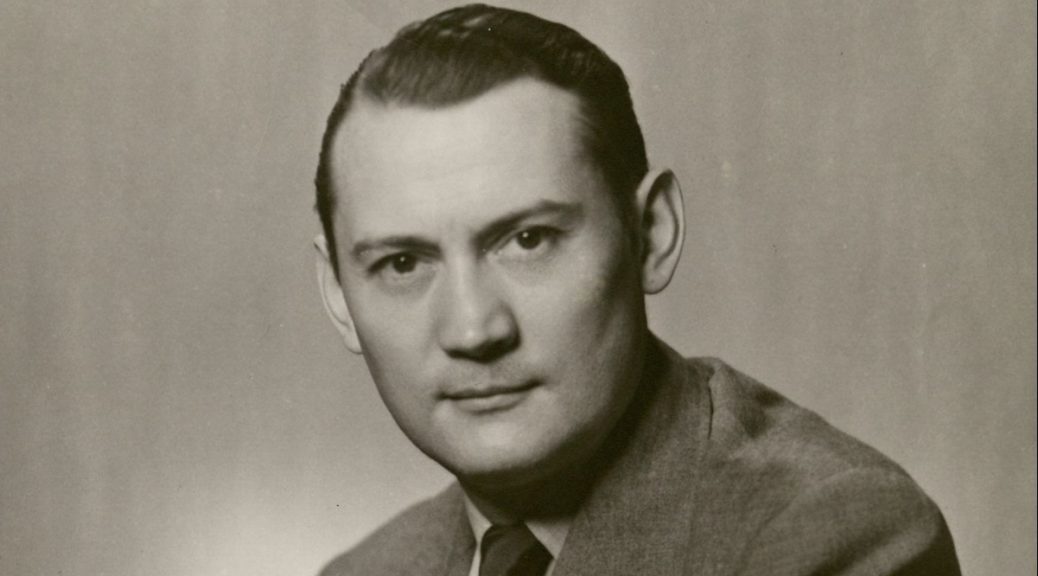Post contributed by Matthew Barrett, Graphic Artist and Historian at the Canadian War Museum
In December 1944, Flight Lieutenant Percy Edward Ryberg was sentenced to dismissal from the Royal Canadian Air Force (RCAF) for renting a London apartment with two airmen accused of homosexuality. Ryberg, a medical officer, had earlier published a book, Health, Sex and Birth Control (1942), which included a chapter devoted to understanding homosexuality. The circumstances of the case left me with many questions about Ryberg. I was intrigued to learn that the Rubenstein Library held Dr. Ryberg’s papers.

Thanks to a History of Medicine Collections travel grant from Duke, in September 2019, I was able to explore Ryberg’s history in far more depth. The visit was well worth the trip as his writings and correspondence offered unique insights into his professional career and private life.
Ryberg was born on February 26, 1908 in England but grew up in Argentina. After graduating with a medical degree from the University of Buenos Aires in 1935, Ryberg worked as a physician in the city. Then in 1938 he earned a three-year fellowship to the Mayo Clinic. Following the outbreak of WWII, he joined the RCAF as a medical officer. He served overseas in England until his dismissal in December 1944.
After the end of his military service, Ryberg took up a position in psychiatry at Johns Hopkins University in June 1945. Within a few years he opened a private psychiatric practice in New York where he also received appointments to various clinics and hospitals. After a medical career that spanned seven decades, Ryberg died on December 16, 2001 at the age of ninety-three.
Despite having read thousands of pages from his diaries, letters, and memos, Ryberg remains something of an enigma to me. His papers reveal the complexity and contradictions of a private life that departed from the ideal he promoted. He wrote about sexual health and rejected judgmental morality but since teenage years he was deeply ambivalent about sex and tried to repress homoerotic feelings. He upheld marriage as the most important and profound experience in life, but privately called his own marriage a “convenience” that he said brought nothing but regret.[1] A constant theme in Ryberg’s life was the ambiguous definition of “normal.” It is a question that the doctor attempted to answer his entire career and was in part what led him to study medicine.

Ryberg sometimes acknowledged the contradictions at the center of his own life and professional identity. He complained that the public placed physicians and psychiatrists on pedestals only to express “spiteful triumph” when revered medical authorities are exposed for human faults and thereby “reveal their feet of clay.” He resented such sayings as “‘Practice what you preach!’ Or, ‘Physician, heal thyself!'” Ryberg argued that “the psychiatrist who is honest with himself and with others tries very hard to practice what he preaches, though he, like other people, may not always succeed.”[2]
I have only highlighted a few of the contradictions between his professional advocacy and private life, but his long career and contributions to psychiatry deserve far deeper analysis. I continue to work through his papers to better understand his life and experiences.
For more detail on Ryberg’s court martial and his medical career see my article, “Conduct Unbecoming an Officer and a Doctor: Medical Attitudes toward Homosexuality and the Court Martial of Dr. Percy Ryberg,” recently published in the Canadian Journal of History. It is freely available for a limited time at: https://utpjournals.press/doi/full/10.3138/cjh-2019-0053
Matthew Barrett is a SSHRC postdoctoral fellow at the Canadian War Museum. As an artist and historian his postdoc project explores graphic and illustrative storytelling as forms of historical interpretation and analysis.
[1] “Sample Column,” October 1954. Ryberg papers, box 3.
[2] Percy Ryberg, to Barbara Ryberg, 30 Oct 1953. Ryberg papers, box 2.


